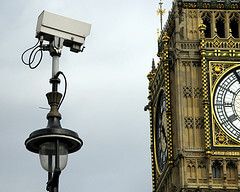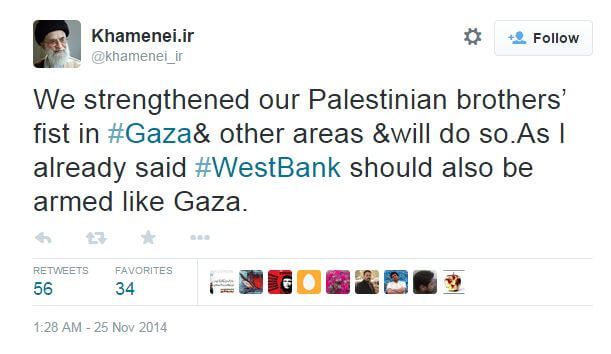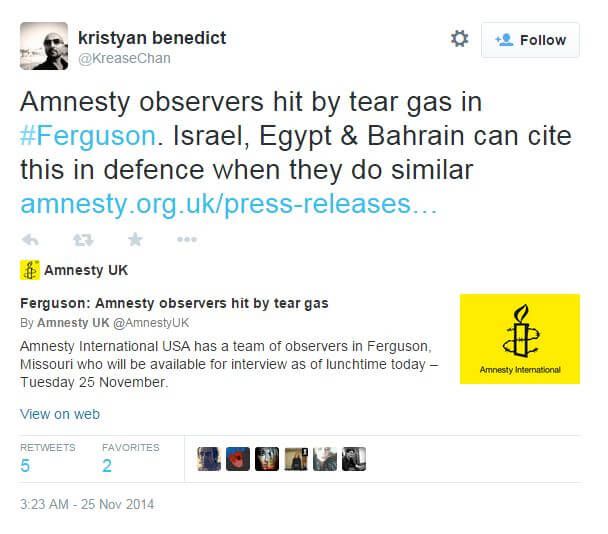Today’s Top Stories
1. The Palestinian Authority denied that it plans to postpone a unilateral statehood push in the UN. Yesterday, the PA’s Foreign Minister, Riad Malki told Maan News that the Palestinians were still seeking support from members of the UN Security Council and waiting for the world to be less preoccupied with the Iranian nuclear talks.
 2. For the second time this year, the British government is reviewing arms export licenses to Israel “to ensure equipment could not be used in a way that would breach international law.”
2. For the second time this year, the British government is reviewing arms export licenses to Israel “to ensure equipment could not be used in a way that would breach international law.”
Judging from this Reuters snippet, it may be a waste of time:
The earlier August review had found that the “vast majority” of exports licensed for Israel were not for items that could be used by Israeli forces in Gaza, she added.
3. Dursun Sahin, a Turkish governor, apologized to Turkey’s Chief Rabbi for threatening to turn the 107 year-old Buyuk Synagogue into a museum and bar worship there in retaliation for alleged Israeli misdeeds on the Temple Mount. Columnist Semih Idiz wonders why higher ups in the Turkish government didn’t condemn Sahin:
What makes the situation worse is that Sahin is not an elected, but an appointed official. In other words, he is the appointee of a government that allegedly condemns anti-Semitism.
One would therefore have expected him to be chastised and even removed from his office and sent packing somewhere else. None of this happened though. There was not one government official who came out to criticize Sahin.
The government isn’t interested in changing the Temple Mount’s status quo. Before the shooting of Yehuda Glick, the matter wasn’t on the Israeli agenda. That a governor would make a threat like this shows how far and wide Palestinian misinformation spreads.
4. Vote for This Year’s Dishonest Reporting Award: It’s that time of the year. Nominate this year’s worst news service or journalist and make your voice heard.
Israel and the Palestinians
• Ambassador Ron Prosor had strong words at the UN’s International Day of Solidarity With the Palestinian People.
• Israel’s President uninvited a singer who penned anti-Arab song from performing at an upcoming ceremony.
“Amir Benayoun is a respected artist of unusual talent and contribution to Israeli music,” said the announcement on behalf of President Reuven Rivlin. “But his words during this tense and confrontational time, even if they stem from deep pain, are not helpful, to say the least, in calming the atmosphere.”
• Temple Mount activist Yehuda Glick was released from the hospital, giving special thanks to the Arab medical workers who saved his life. His comments got a lot of play in the Israeli media.
“The terrorist who shot me told me, ‘I’m sorry, but I’m shooting you because you’re desecrating Al-Aqsa.’ But the person who shoots another person in the name of Al-Aqsa is the one who is desecrating Al-Aqsa, and the person who treats another person in the hospital is the one who is honoring Islam. The Muslim doctors and nurses who work in the hospital are the people who honor their religion, not the man who shot me.”
• As always, Ayatollah Ali Khamenei is a voice of reason on Twitter.

Commentary/Analysis
• Professor Eytan Gilboa‘s take on the media response to the synagogue attack is very worth reading. He also refers to a photo of Tuvia Grossman, which, for HonestReporting, is The Photo That Started it All. (There’s a happy ending: we tracked down the maligned border policeman who saved Tuvia’s life and arranged a reunion.)
• The Palestinians know they’d be exposed to war crimes charges if they try to drag Israel before the International Criminal Court. So why are so they so attached to this tactic? Eugene Kontorovich takes a fascinating stab:
But the Palestinians may also be counting on a practical advantage they have. They may doubt that the ICC’s writ will run to Palestinian-controlled society. The ICC has never successfully carried out an investigation in a state that does not want it there. As the collapse of the high-profile prosecution of Kenya’s president in recent months shows, the ICC is powerless in the face of recalcitrance, let alone active undermining, by state subject to investigation. The opportunities the authoritarian Palestinian government will have for witness intimidation (recall the “collaborators” in Gaza), evidence manipulation and so forth are massive. Israel, by contrast, is an open democracy, whose own NGOs and international lawyers happily argue the case against it. Call it asymmetric lawfare.
Thus despite the ICC’s best intentions to pursue cases against both sides, the Palestinians may reckon that given the Court’s limitations, they might be effectively insulated. They may miscalculate here as well – unlike in the Kenya situation, there is another party involved, and significant evidence could be provided by Israel itself. If they are right, while the Palestinian leadership might avoid accountability, the price will be the legitimacy of the ICC. The Palestinians may be happy to burn the ICC for diplomatic leverage, but it is not clear why the rest of the world should go along.
• Yossi Beilin draws a parallel between Israel and Ferguson. So does Amnesty International’s Kristyan Benedict in a far more snarky way.
• With Iran secure as a nuclear threshold state, has Israel failed?
• 4 Big Reasons The Iranian Nuclear Deal Didn’t Happen
• What was behind the rift between Qatar and the Gulf states, and why is it over now, asks Zvi Barel.
• Staff-eds in the New York Times, Irish Times, and Times of London reflect some of what I’m seeing in the Israeli debate over the Jewish statehood bill.
• For more commentary/analysis, see Chemi Shalev (Ironically, Israel is sorriest to see Hagel go). Weighing in on the Iranian talks were Bret Stephens (Wall St. Journal via Google News) and a Los Angeles Times staff-ed.
Featured image: CC BY-SA flickr/Esther Vargas; Big Ben CC BY-NC-SA flickr/Stephen Johnson
For more, see yesterday’s Israel Daily News Stream and join the IDNS on Facebook.



